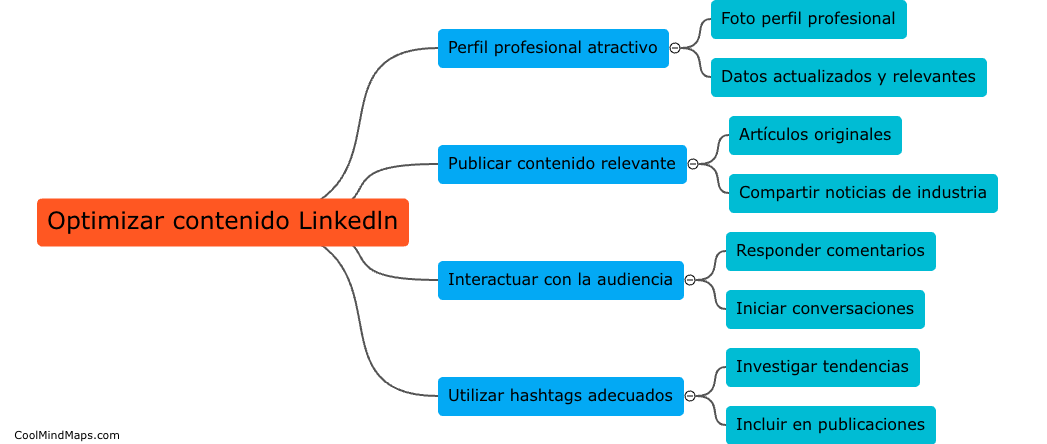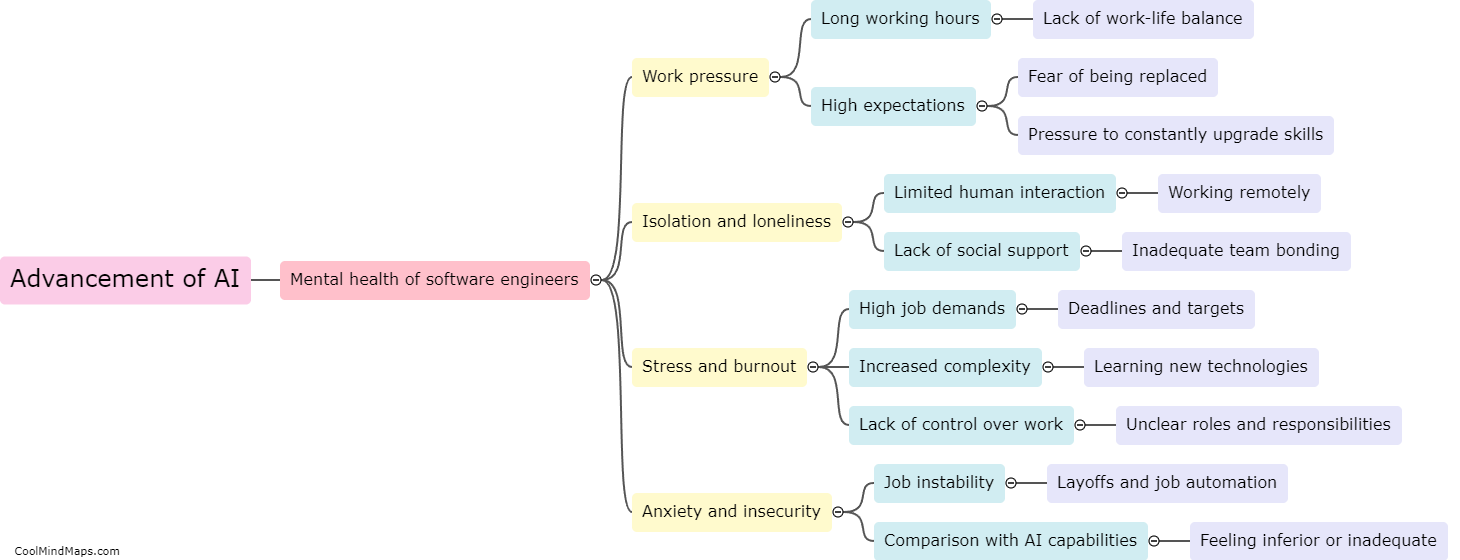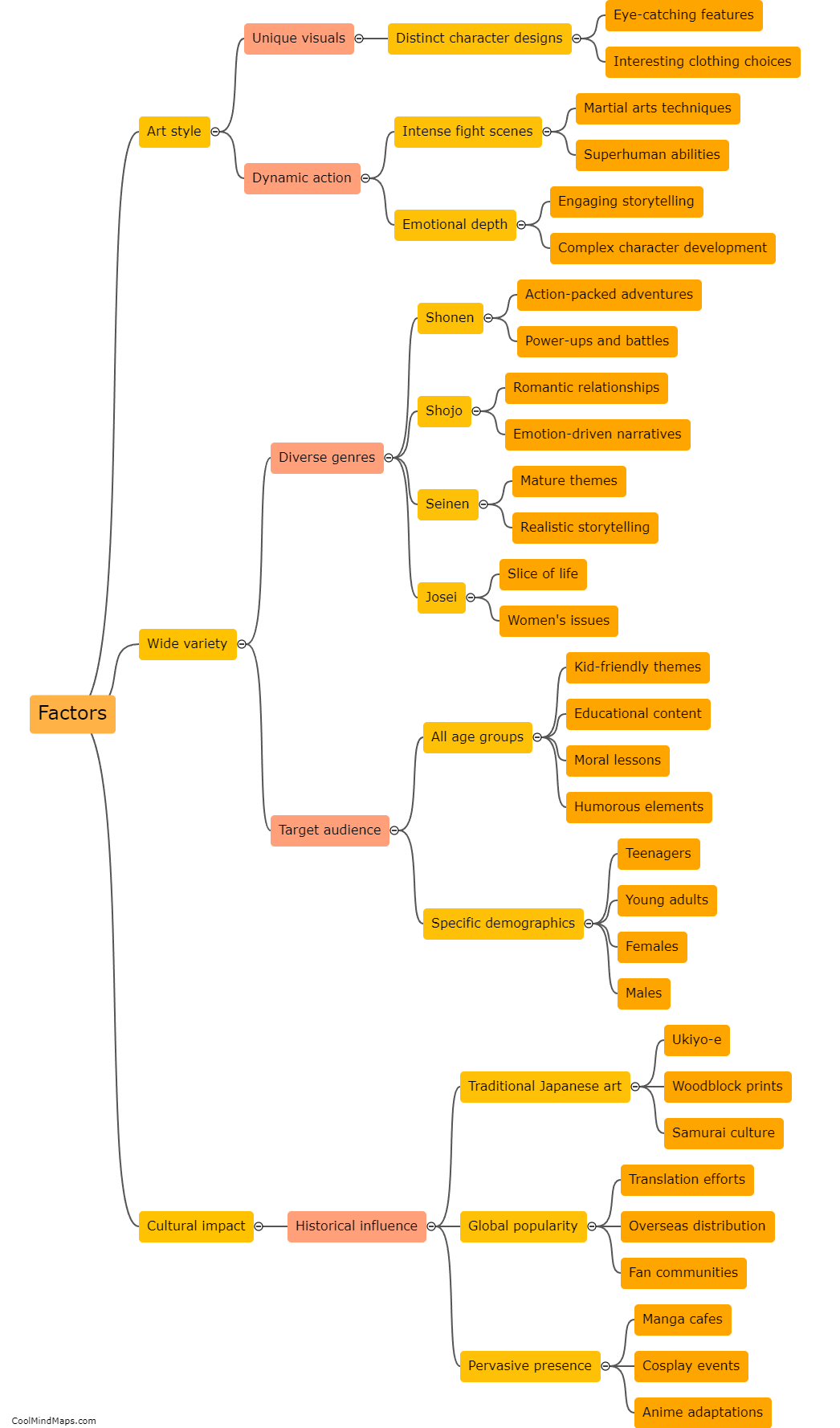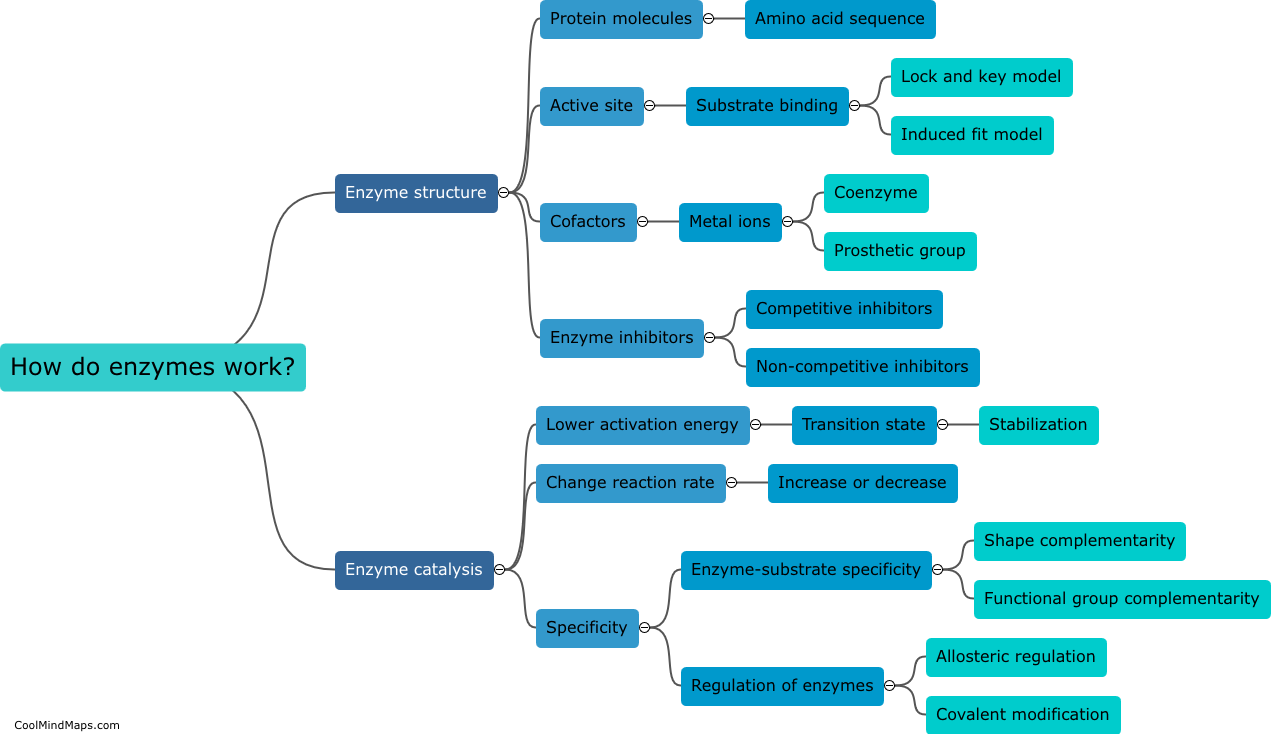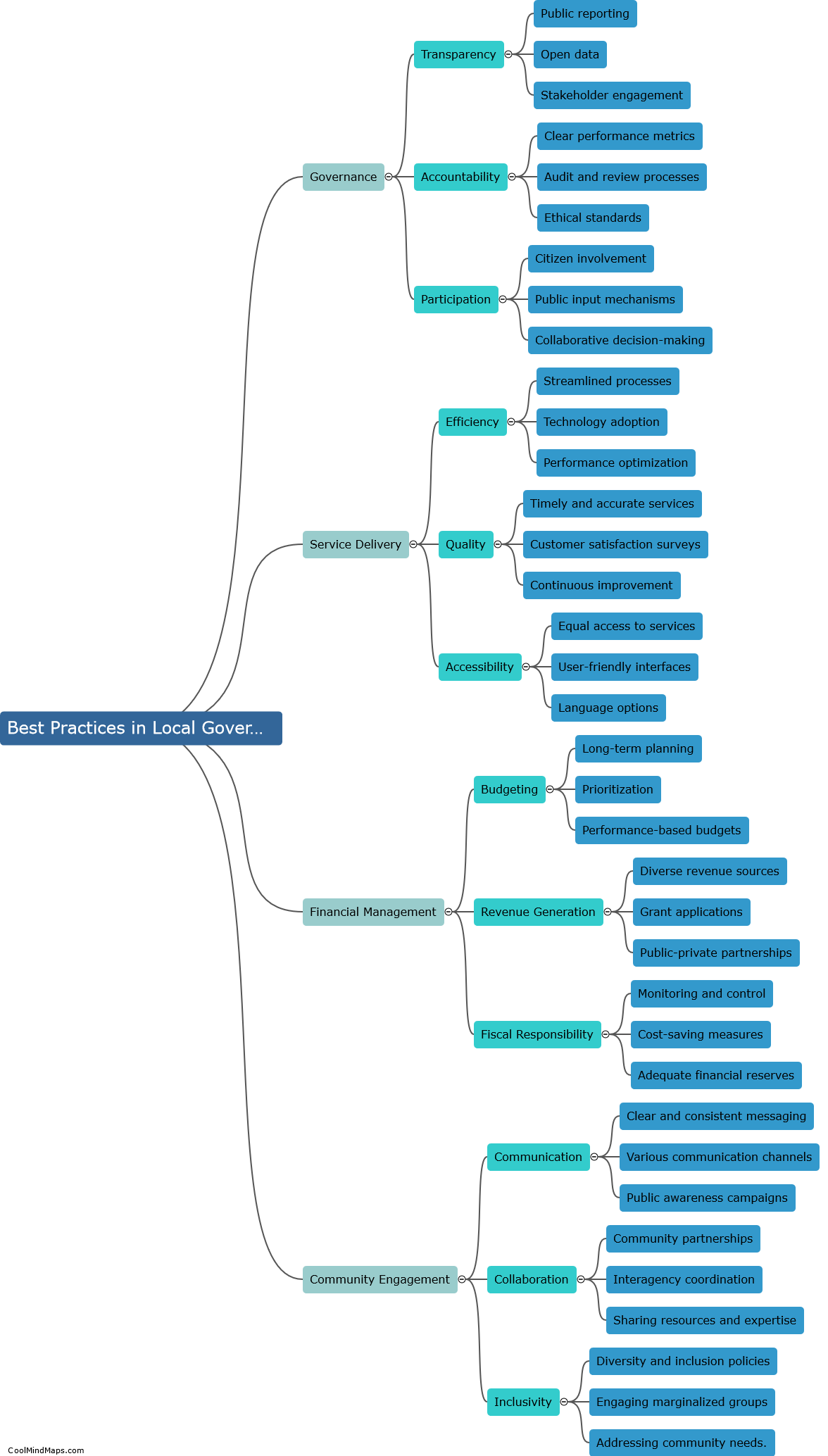What is an enzyme?
An enzyme is a type of protein that acts as a catalyst in biological reactions. It plays a crucial role in speeding up or facilitating chemical reactions in living organisms without being consumed or permanently altered in the process. Enzymes work by lowering the activation energy required for a reaction to occur, thereby increasing the rate of the reaction. They achieve this by binding to the reactants, called substrates, in a specific manner, forming an enzyme-substrate complex. Through this complex, enzymes help to convert substrates into products and allow various biochemical processes within cells to occur efficiently. Enzymes are highly specific and can only catalyze specific reactions, as their active sites are precisely shaped to fit particular substrates. As a result, they are essential for maintaining normal bodily functions and are involved in numerous metabolic processes.

This mind map was published on 6 December 2023 and has been viewed 113 times.

